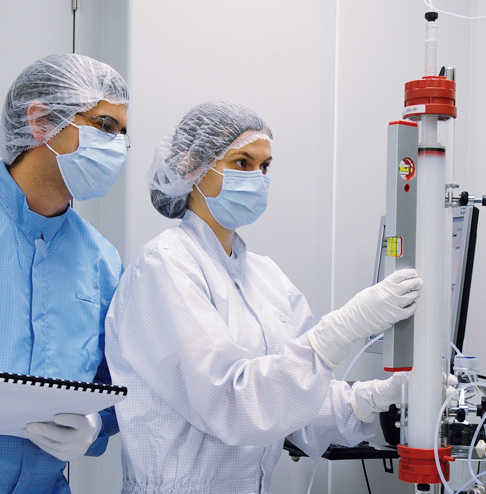Recombinant Proteins to be used in Veterinary Medicine
Recombinant proteins are a sophisticated way to go in the production of veterinary vaccines and glycosylation patterns can play a big part.

Recently there has been a lot of achievements in the field of recombinant technologies. Luckily, recombinant proteins in the form of ion channels, antibodies, cytokines, coagulation factors and many others can be produced in the laboratory without the help of human donors. Many of these proteins, however, are hard to manufacture as they have highly complex glycosylation patterns that are difficult to express.
Blood plasma has been a widely used source of many different biotherapeutic proteins like antibodies, albumin and blood coagulation factors. These proteins are essential for the treatment of many diseases, such as hemophilia or immunological disorders, but sources are limited and safety concerns still plague industry professionals.
There is a biotechnology company that has been trying to improve the production of these complex recombinant proteins that have been previously “out-of-reach,” according to the company, CEVEC. There is a need for the efficient manufacturing of difficult therapeutic proteins in the pharmaceutical, biotechnology and veterinary sectors of medicine, and CEVEC hopes that they can help push the technology forward, and make these proteins more widely available.
Recombinant proteins can benefit veterinary medicine as well; they have been utilized in recent years for livestock animal vaccines. The CSO of CEVEC, Dr. Nicole Faust, says that animal vaccines are not as different from human vaccines as most people think. “Viral protein-based vaccines can be produced with common biotech methods that are also employed for the production of other recombinant proteins,” she explains. “These methods include cell line development, upstream and downstream process development and the production of the recombinant protein in fermentation processes. We have specialized in these technologies, which is why we saw our platform fit to take up this new project in the field of veterinary medicine.”
CEVEC uses their own technology to produce recombinant proteins with specific tailor-made glycosylation patterns, which can improve their physicochemical and pharmacological properties; it is called CAP®Go. It consists of several cell lines that are all engineered to efficiently produce difficult recombinant proteins.
The platform particularly helps the production of complexly glycosylated proteins, like vital blood coagulation factors, other plasma proteins, viral proteins or enzymes. In addition to generating high yields of the product the platform allows them to tailor the glycans, the sugar structures attached to the glycoprotein, and according to specific requirements.
It also works with full viruses, as CEVEC has recently shown in a project for a human Zika vaccine in cooperation with NewLink Genetics. Additionally, the system is fully scalable allowing for large scale batches and drastically reducing the cost per dose by economy of scale. This enables our partners to manufacture their products in a cost-effective way.
Veterinary medicinal futures seem to be opening up with the help of technological advances like this.